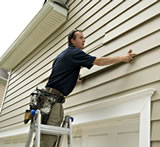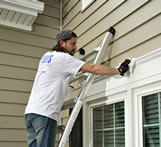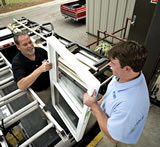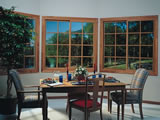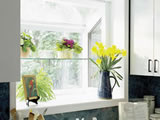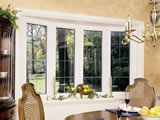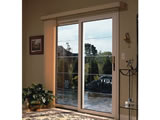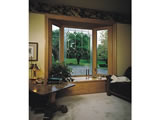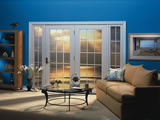When To Consider Replacement Windows
by Martin Troughton
If the existing windows in your home are not as good as new, it’s time to consider replacing them. You can choose from wood, aluminium, steel, fibreglass and extruded vinyl. Vinyl is the most common material used for replacement windows because it is affordable and thermally efficient. Replacement windows can be single or double hung, casements, sliders or fixed or any combination of these.Window replacement is necessary when windows are broken, dont open properly, leak, are rotted or inefficient. The majority of heat lost from a home is due to inefficient windows. Windows manufactured before the 1970s required storms and screens to deal with winter weather and summer bugs.
Replacement windows manufactured today are made with multiple panes of glass to increase insulating properties, and screens are generally integrated into the window unit itself.
Homes are normally built using builders windows, which reflect the window sizes and styles popular for use in new homes at the time. But windows can develop problems with age, and become unsafe if they are cracked, dont open, won’t stay open, or let in drafts and weather. This makes an old, leaky or damaged window too expensive not to replace. Replacement windows are manufactured to fit the existing window openings, and can be made to look like the original windows, or can update a home’s overall look by introducing new window styling.
Grouping a number of replacement windows together into a special frame can turn an inefficient ?picture window? into an attractive bow or bay. Small as a basement vent window, or large enough for sunroom panels, replacement windows can be manufactured to many sizes. Window manufacturers now make windows shaped into octagons, triangles and arches to replace even antiquated windows with unusual architectural details.
The best replacement windows are those which have the highest energy-efficiency. Certain materials, such as aluminium and steel tend to draw cold into the home by the materials themselves. Wood is a good insulator, but tends to require upkeep such as painting and caulking. Vinyl replacement windows are by far the most popular, not only because they are less expensive than wood, they are also low maintenance and energy efficient.
What makes for a good replacement window is a combination of factors. First is appearance. Second is thermal efficiency of the window components such as the sash and rails. Third is the insulation used to seal moving parts so the window doesn’t allow drafts or leak. Fourth is the glass used, whether its single, double, or triple glass, has inner membranes, is gas-filled, or has a coating to resist heat loss or protect furnishings from sunlight fading. Finally, the most important factor tends to be price, and the part it plays in choosing a window with the other options.
Replacement window pricing reflects a variety of considerations. The materials used to make the window, the number of windowpanes, and the size of the window must be considered. Then there are the materials to install and weatherproof the installation, grids, if any, and upgrades in window hardware. Add special prices for insulating gasses, or coatings to reduce furniture fading. Don?t forget labour to remove and install the new windows is considered in the price.
About the Author:
Martin Troughton is an expert in the double glazing industry. If you want further information regarding or energy efficiency please visit http://www.anglianhome.co.uk



